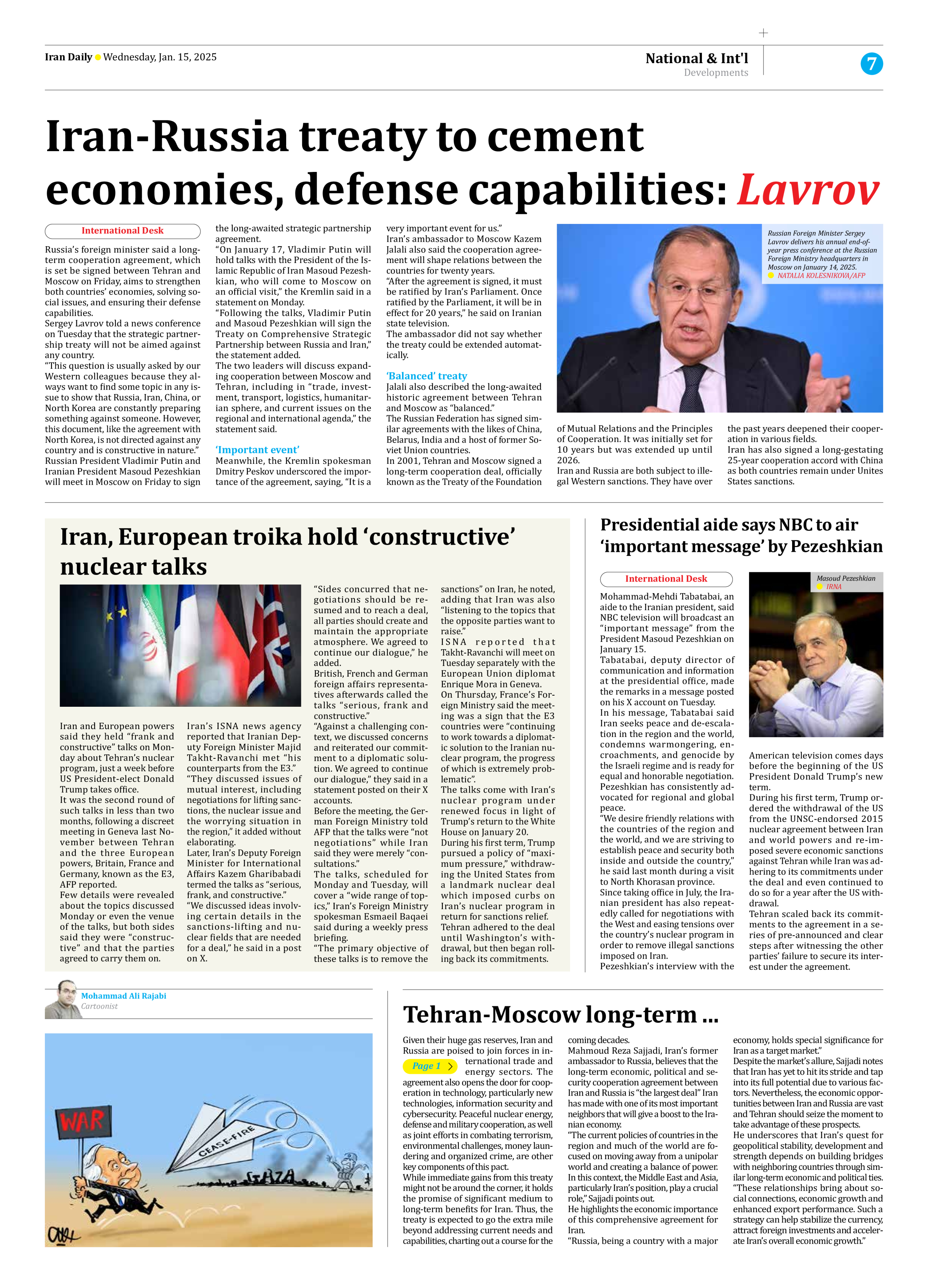
Tehran-Moscow long-term ...
Page 1
Given their huge gas reserves, Iran and Russia are poised to join forces in international trade and energy sectors. The agreement also opens the door for cooperation in technology, particularly new technologies, information security and cybersecurity. Peaceful nuclear energy, defense and military cooperation, as well as joint efforts in combating terrorism, environmental challenges, money laundering and organized crime, are other key components of this pact.
While immediate gains from this treaty might not be around the corner, it holds the promise of significant medium to long-term benefits for Iran. Thus, the treaty is expected to go the extra mile beyond addressing current needs and capabilities, charting out a course for the coming decades.
Mahmoud Reza Sajjadi, Iran’s former ambassador to Russia, believes that the long-term economic, political and security cooperation agreement between Iran and Russia is “the largest deal” Iran has made with one of its most important neighbors that will give a boost to the Iranian economy.
“The current policies of countries in the region and much of the world are focused on moving away from a unipolar world and creating a balance of power. In this context, the Middle East and Asia, particularly Iran’s position, play a crucial role,” Sajjadi points out.
He highlights the economic importance of this comprehensive agreement for Iran.
“Russia, being a country with a major economy, holds special significance for Iran as a target market.”
Despite the market’s allure, Sajjadi notes that Iran has yet to hit its stride and tap into its full potential due to various factors. Nevertheless, the economic opportunities between Iran and Russia are vast and Tehran should seize the moment to take advantage of these prospects.
He underscores that Iran’s quest for geopolitical stability, development and strength depends on building bridges with neighboring countries through similar long-term economic and political ties.
“These relationships bring about social connections, economic growth and enhanced export performance. Such a strategy can help stabilize the currency, attract foreign investments and accelerate Iran’s overall economic growth.”







